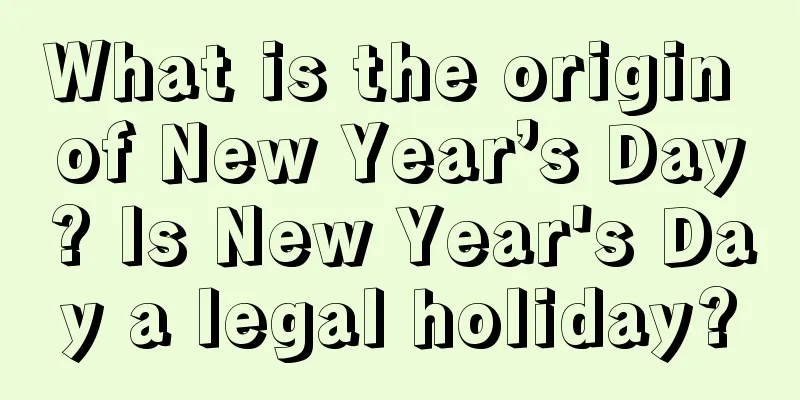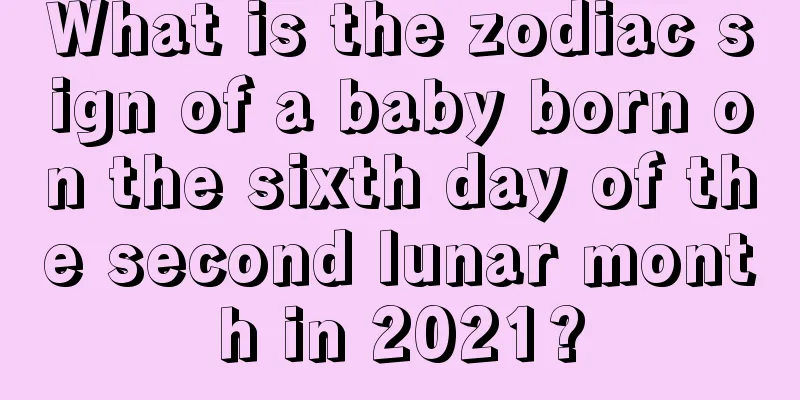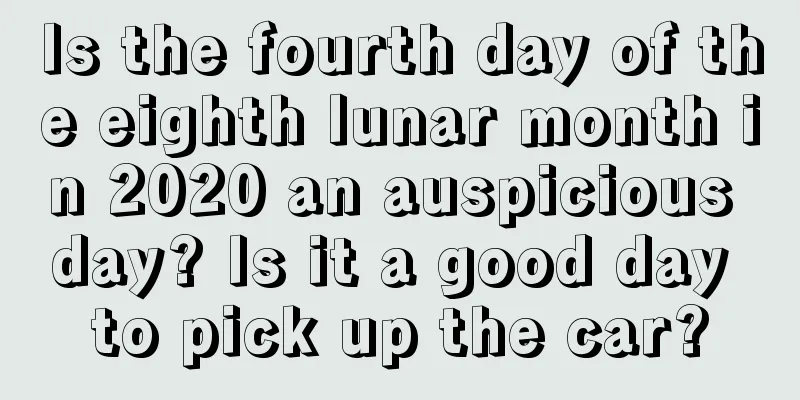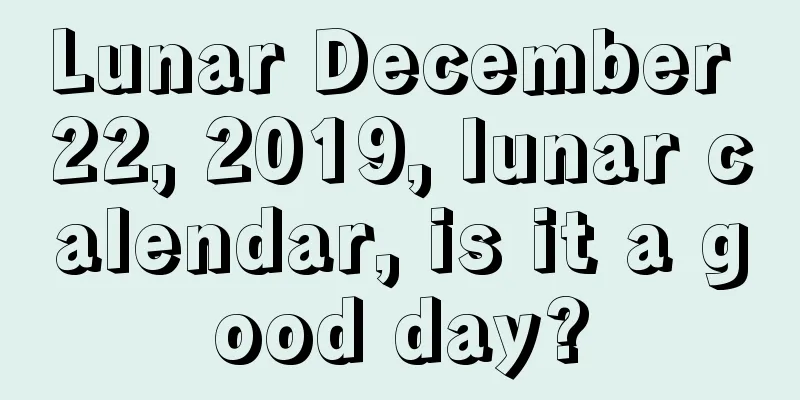What is the origin of New Year’s Day? Is New Year's Day a legal holiday?

New Year's Day means the beginning of the new year and has a very important significance. So what is the origin of New Year's Day? Is New Year's Day a legal holiday? Let’s take a look at the following content!What is the origin of New Year’s Day?When it comes to New Year's Day, many people generally think of it as a holiday. It is a legal holiday in various countries and a day when people can take a break from work. Relevant experts said that in fact, the term "New Year's Day" has been used in China for more than 4,000 years.The original origin The word "New Year's Day" is a "native product" of ancient China. In the Xia Dynasty of China, the "Xia calendar" was created, which is now the "Lunar calendar", and it is stipulated that the first day of the first lunar month is "New Year's Day". Quote from classics The word "New Year's Day" first appeared in the poem "Book of Jin": "Emperor Zhuanxu took the first month of summer as the beginning, which was actually the spring of the New Year's Day." During the Northern and Southern Dynasties, the Southern Dynasty historian Xiao Ziyun also recorded in his poem "Jie Ya" "Four seasons new New Year's Day, longevity early spring morning". In the Song Dynasty, Wu Zimu's "Dream of the Red Chamber" Volume 1 "The First Month" entry reads: "The first day of the first month is called Yuandan, commonly known as the New Year. This is the first of the festivals in a year."; in the Han Dynasty, Cui Yuan's "Three Hairpin Inscription" called it "Yuanzheng"; in the Jin Dynasty, Yu Chan's "Ode to Yangdu" called it "Yuanchen"; in the Northern Qi Dynasty's "New Year's Day Grand Festival Song Huangxia Ci" called it "Yuanchun"; in the Tang Dynasty's Dezong Li Shi's "New Year's Day Retreat to Watch the Army Return to the Camp" called it "Yuanshuo" In Chinese, "New Year's Day" is a compound word. "Yuan" means "beginning" and "Dan" refers to dawn or morning. The pictograph of "旦" already appeared on bronze vessels during the Shang Dynasty. There is a "日" above "旦", which means a round sun; and a "一" below it, which means the horizon. "日" and "一" together mean the sun jumps out of the horizon and rises slowly in the east. The ancients created the word "New Year's Day", which has beautiful meaning, ingenious and exquisite. Is New Year's Day a legal holiday?YesNew Year's Day is January 1st of the Gregorian calendar every year, and national statutory holidays refer to the days when the state stipulates holidays. The statutory holidays in our country are Spring Festival, Tomb-Sweeping Day, Labor Day, Dragon Boat Festival, Mid-Autumn Festival and National Day. Among them, the four statutory holidays of Spring Festival, Qingming Festival, Labor Day and National Day have high fees. But the highway is not free on New Year's Day. |
Recommend
Is it auspicious to move into a new house on the second day of February in 2020? The dragon raises its head on the second day of February to pick up a girl!
Introduction: You need to choose an auspicious day...
What are the do’s and don’ts on September 16th of the lunar calendar in 2019?
The ninth month of the lunar calendar is called t...
The fifth day of the eighth lunar month in 2017 is a good day, is it?
August is the month of osmanthus, because the str...
What to eat during the Beginning of Summer? Beginning of Summer seasonal food recommendations
I believe many of my friends are familiar with the...
Is the tenth day of the tenth lunar month in 2021 a bad day? Can I start renovations?
In the tenth month of the lunar calendar, although...
Is it good or bad for people born on the Cold Clothes Festival in the Year of the Tiger?
The tiger is the third of the twelve zodiac signs....
Is the 22nd day of the twelfth lunar month of 2020 a good day? Is it possible to move into the new house?
The twelfth lunar month is when the cold wind howl...
2018 Lunar April 19th Auspicious Time, Good and Bad Time Query
The fourth month of the lunar calendar has alread...
Can I get a haircut on November 23, 2018 in the lunar calendar?
Haircutting and hairdressing are different. Simply...
What zodiac sign does a person born on September 13th of the lunar calendar in 2019 correspond to? Things to do and not to do on that day
The zodiac sign is determined by each person's...
What is the fate of a baby girl born on April 28th of the lunar calendar in 2019?
The time of birth is our birth date and eight char...
Is it a good idea to pick up the car on May 12th of the lunar calendar in 2018?
The fifth month of the lunar calendar in 2018 als...
What day is the seventh day of the eleventh lunar month in 2021? Is this a good day for opening a business?
The eleventh month of the lunar calendar belongs t...
Feng Shui Tips for Attracting Wealth in 2017
Introduction: Do you want to improve your fortune...
What are the Feng Shui impacts of balconies in different directions? What are the taboos of balcony feng shui?
Introduction: The balcony is not only a place for ...









